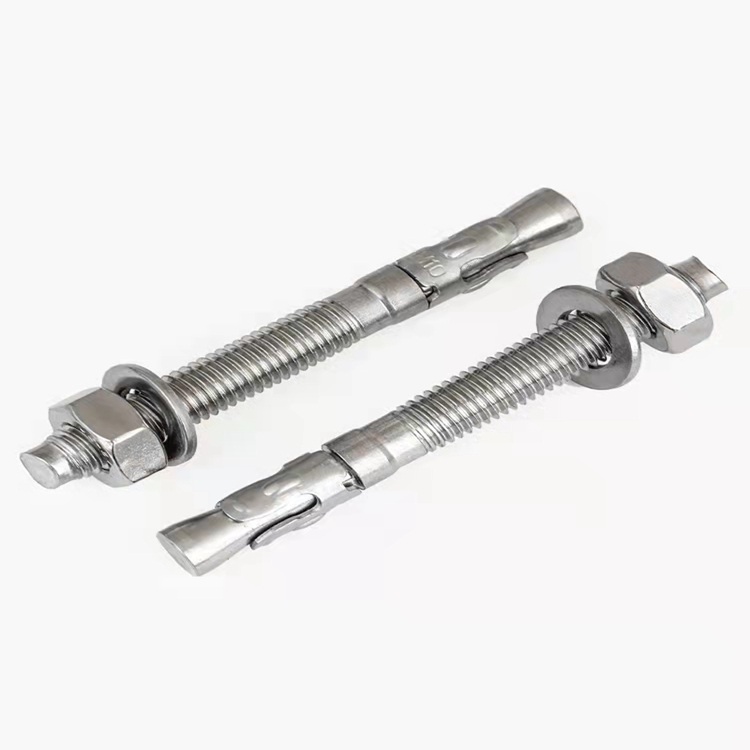neoprene screws factory
Dis . 04, 2024 19:15 Back to list
neoprene screws factory
The Evolution and Importance of Neoprene Screws in Manufacturing
In the realm of manufacturing and construction, the materials and components used are crucial for ensuring durability, reliability, and overall performance. Among these components, neoprene screws have gained significant attention due to their unique properties and advantages. Neoprene, a type of synthetic rubber, is known for its exceptional resistance to weathering, oil, and chemicals. This article delves into the role of neoprene screws, the advantages they offer, and the functioning of neoprene screws factories.
Understanding Neoprene
Neoprene was developed in the 1930s and has since become a widely used material in various industries. Its resistance to degradation and its flexibility make it an ideal choice for applications requiring reliable sealing and insulation. The production of neoprene screws involves incorporating neoprene into the screws' design, allowing for enhanced performance in harsh environments.
Neoprene Screws Features and Benefits
1. Weather Resistance One of the primary benefits of neoprene screws is their ability to withstand extreme weather conditions. In environments exposed to moisture, UV radiation, and temperature fluctuations, neoprene screws resist deterioration, making them suitable for outdoor applications such as roofing, siding, and marine installations.
2. Chemical Resistance Neoprene screws are resistant to a wide range of chemicals, including oils, solvents, and fuels. This characteristic makes them ideal for use in the automotive, aerospace, and chemical processing industries, where exposure to various substances is common.
3. Noise and Vibration Damping The elasticity of neoprene allows for better noise and vibration absorption compared to traditional metal screws. This property is particularly advantageous in machinery and automotive applications, where excessive noise and vibrations can lead to component failure and discomfort.
4. Sealing Capabilities Neoprene screws can provide excellent sealing properties. When used in conjunction with neoprene washers or gaskets, they help prevent leaks and maintain pressure in fluid systems, contributing to overall system integrity.
5. Lightweight and Versatile Neoprene screws are lighter than many metal counterparts, which can lead to lower shipping costs and easier handling during installation. Their versatility allows them to be used in various applications, from light-duty projects to heavy industrial uses.
neoprene screws factory

The Neoprene Screws Manufacturing Process
The manufacturing process of neoprene screws involves several steps, ensuring that both the screws and the neoprene components meet the highest quality standards.
1. Material Selection Manufacturers begin by selecting the right grade of neoprene, which can vary based on the intended application. High-quality neoprene is essential for achieving the desired mechanical properties and resistance characteristics.
2. Screw Fabrication Using advanced machinery, manufacturers produce screws from various metals, typically steel or stainless steel. The screws are then coated or treated to enhance their corrosion resistance.
3. Neoprene Application After fabricating the screws, the next step involves applying neoprene. This can be done through processes such as molding or extrusion, where neoprene is formed around the screw or as a separate component that works in tandem with the screw.
4. Quality Control Quality assurance is critical in the production of neoprene screws. Manufacturers conduct rigorous testing to ensure that each screw meets industry standards for strength, durability, and resistance to environmental factors.
5. Packaging and Distribution Once the screws pass quality control, they are packaged and prepared for distribution. Manufacturers may cater to various industries, offering bulk orders or specific quantities based on customer needs.
Conclusion
The role of neoprene screws in manufacturing and construction cannot be overstated. Their unique properties, including resistance to weathering and chemicals, noise and vibration damping capabilities, and excellent sealing performance, make them indispensable in many applications. Neoprene screws factories play a crucial role in ensuring that these components are produced with the highest quality standards, meeting the diverse needs of industries worldwide. As technology continues to evolve, the demand for innovative materials like neoprene will likely grow, further solidifying the importance of neoprene screws in the manufacturing landscape.
Latest news
-
Durable Bolts for Lawn Mower Handle - Top Supplier & Manufacturer
NewsAug.22,2025
-
High-Quality Bolts for Lawn Mower Handle Supplier & Manufacturer
NewsAug.21,2025
-
Reliable Axle Nuts Supplier | High-Quality Automotive Parts
NewsAug.19,2025
-
Premium Wire Bolts Suppliers | Durable & Reliable Fasteners
NewsAug.18,2025
-
Leading Metric Wood Screw Companies & Manufacturers
NewsAug.17,2025
-
Top Wire Bolts Suppliers - Quality & Durable Fasteners
NewsAug.15,2025
